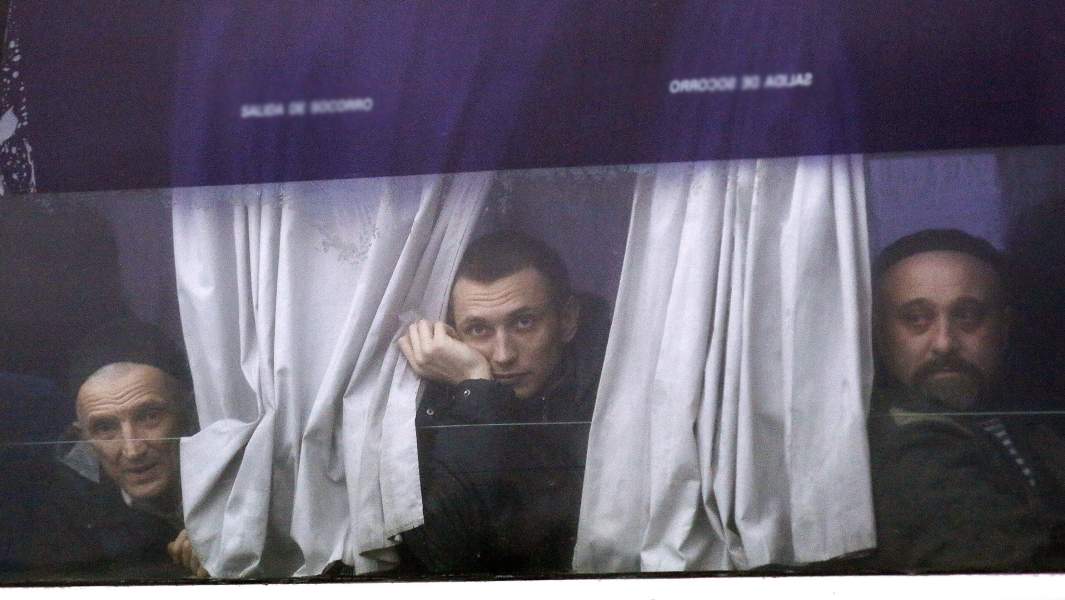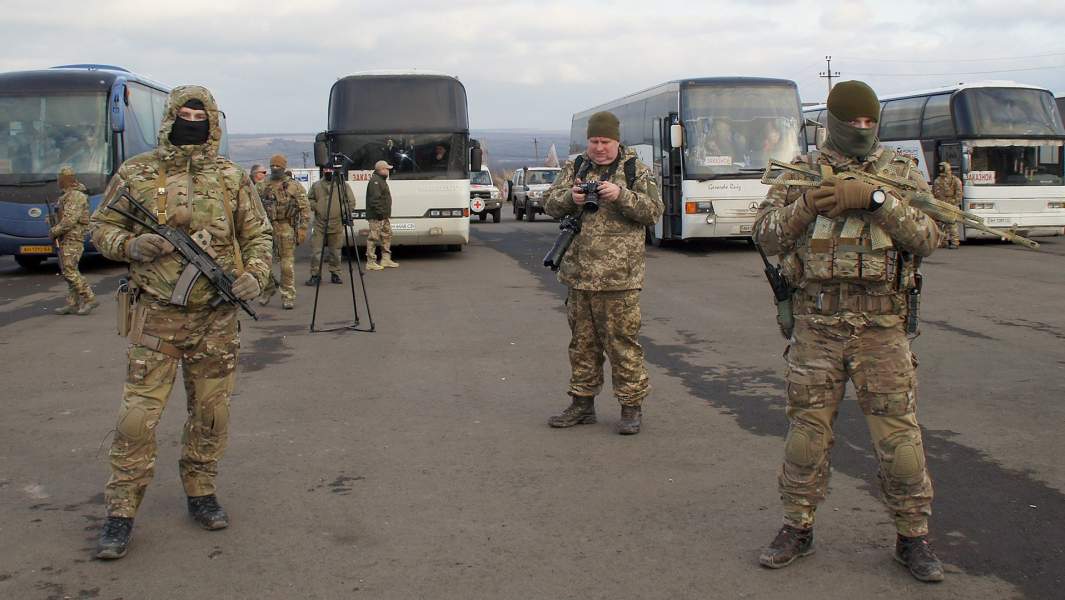The next stage of the prisoner exchange between Kiev and People’s Republics is to take place soon. According to Donbass representatives, the Ukrainian side struggles to protract the process, although there is still hope that the lists will be reconciled and the procedure will be started.
Earlier, in December 2017, Kiev handed over 233 political prisoners to Donbass Republics as a part of a large exchange. The released people got a warm welcome at the DPR border. “We are going to start a new life!” former prisoners said.
In Donetsk, former prisoners have undergone a medical examination and have been accommodated in Temporary Accommodation Centres (TACs) – dormitories. Although, no one promised to provide individual apartments, people were happy to receive at least some place to live, even more after spending a year, two or even three years in prison cells. For the first three months, accommodation is free-of-charge. After this period, people have to pay only for facilities they use – from 210 to 790 rubles, which depends on the season. They reside with their comrades in misfortune – forcibly displaced persons, who lost their homes due to hostilities.

The main TAC in Donetsk is situated near a medical university in Kaluzhskaya street. 65 people, released from captivity, reside there. Most of them are civilians, who were accused of separatism for various reasons.
For four months, they say, few of them have managed to find some stability in their lives: find a job and receive identity documents (all passports have been destroyed in prisons). Others still haven’t. It is especially difficult for those who came from other regions. They don’t have any relatives and friends here, their hometown is far away. And they cannot return home – criminal proceedings against them haven’t been terminated in Ukraine.
One of the residents of such TAC is an inhabitant of Kharkov Elena Pertuk. “A distinguished granny – she calls herself. – Five grandchildren.” The woman has spent two years and eight months in Ukrainian captivity.
– At the beginning of 2014 I was in charge of an initiative group that evacuated people from the combat zone of Donetsk and accommodated them in Kharkov, – Elena starts. – Then I joined a clandestine group “Soprotivlenie” (Resistance), we conducted sabotage activities against nationalists – in particular, we blew up a memorial sign of the UIA (Ukrainian Insurgent Army). In 2015 I was captured and put in remand prison. They tortured me – shot my leg, broke my fingers and damaged the bridge of my nose. I’ve spent five months in a solitary confinement. I was looking at prison sentence from 15 years up to life imprisonment. It was a miracle that I have been exchanged – some Russian authority facilitated it.
Elena was ambiguous about her new life. “I’m grateful that a room was provided to me, as well as relief items. Also, medical treatment is being provided for people who have poor health or physical disabilities. But it’s difficult for us to get livelihoods. The ICRC provides us with food packages once in two months, but it’s enough for a week. Also, it is impossible for a pensioner to find a job – because of the age. Even young people cannot take a quick start – they need to recover. We are stuck between two worlds, so to speak. What really helps is initiative groups, volunteers, military men. Of course, no one shall coddle us – the Republic is in the state of defense. But not everybody is financially independent.”
Olga L. comes from Dzerzhinsk, Donetsk Oblast, (now controlled by Ukraine). She was captured in December 2016.
– I spotted for DPR artillery fire – she said. – There were direct hits against Gorlovka, Zaitsevo, and Nikitovka from positions in Dzerzhinsk. Tanks and “Grad” MRLSs had been set between detached houses. My task was to walk around, watch and report the coordinates to our forces via mobile phone. That’s how they tracked me down. An assault team came, they drove me west – to Vinnitsa. I must say that they neither tortured nor beat me. I haven’t stayed in prison for a long period, I was included in the lists. I was lucky. Although, some of my fellows stayed there.
In the DPR, the woman receives a pension – 2,900 rubles. Currently, this is her only source of income. She hasn’t received passport yet, so she cannot leave the Republic: Olga’s daughter lives in Russia.

Another released person – Yuriy Kovalchuk. He was an “Anti-maidan” activist, was involved in militia activities, have worked in Russia for several months. He came back to Ukraine because his travel documents expired. He has spent a year and a half in captivity. He told about kicked in teeth, broken ribs, and sharing prison cells with common criminals. Now he lives in Lugansk. He works as a journalist, rents a flat. His friends helped him to get back on his feet. If he had been alone, maybe he would have still been waiting for the help from the government. In the nearest future, Yuriy is going to write guidelines with recommendations to people captured in Ukrainian detention facilities.
However, it turns out that such guidelines are also needed for those who returned from captivity. How to recover, how to find yourself in a new place, how not to become a “dependant”? While it is true that the minimum benefit is not enough for most of the people – it’s a fact, – there are people who are not willing to adapt.
According to the psychologist of the Medical and Psychological Centre of the Donetsk Neurological Clinic Anna Kibukevich, some prisoners of war, unfortunately, “get stuck” in the military or prison period: their whole life revolves around these memories. They do not want to, and, sometimes, do not know how to get rid of this burden. Often the lack of support from other people exacerbates the situation: a person hides inside. They need to speak out, leave the past behind and move on.
This field of work has yet to be improved in the Republic. Now Donetsk is searching for 289 people who can be held in Ukrainian detention facilities and prisons. Sooner or later they will probably be released and face a reality different from their optimistic expectations. I hope that their adaptation will be less painful.

As for the next exchange of prisoners, the DPR Ombudsman Daria Morozova told Izvestia that the Donbass Republics are ready for this step, the preliminary formula is “14 for 80”. According to Boris Gryzlov, plenipotentiary representative of the Russian Federation in the Contact Group on Ukraine, the exchange is possible to take place. It is likely to be performed step by step, lists are now being verified.



